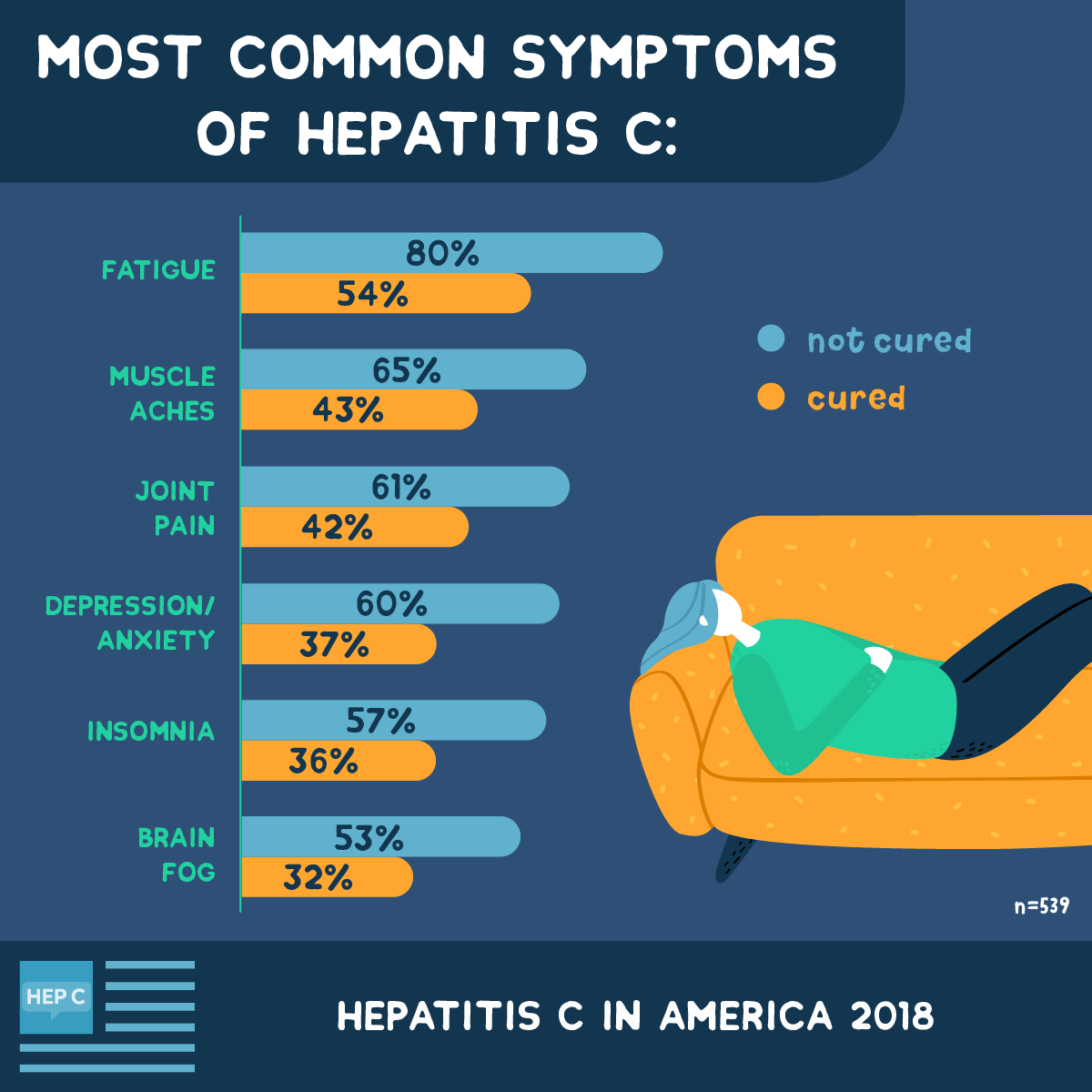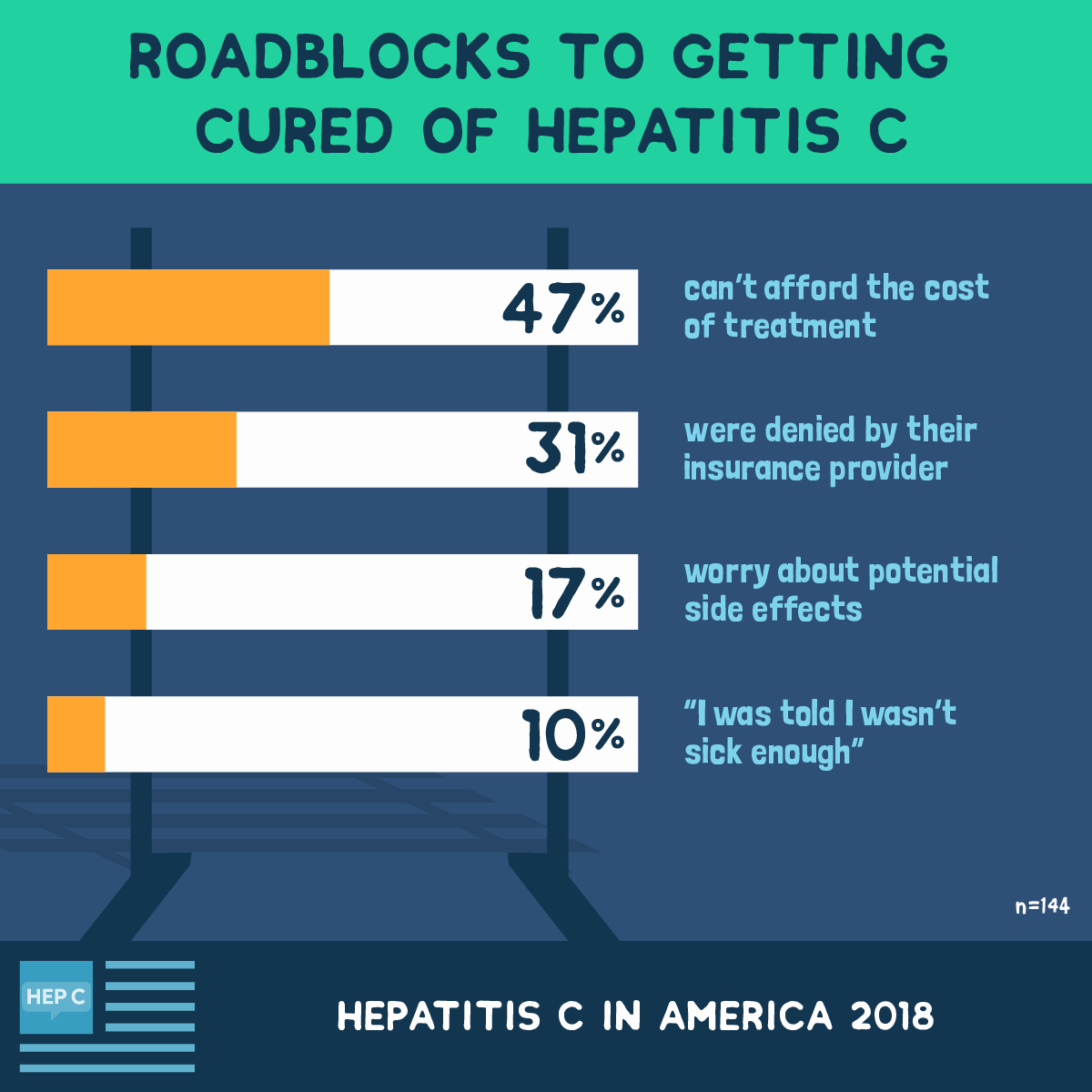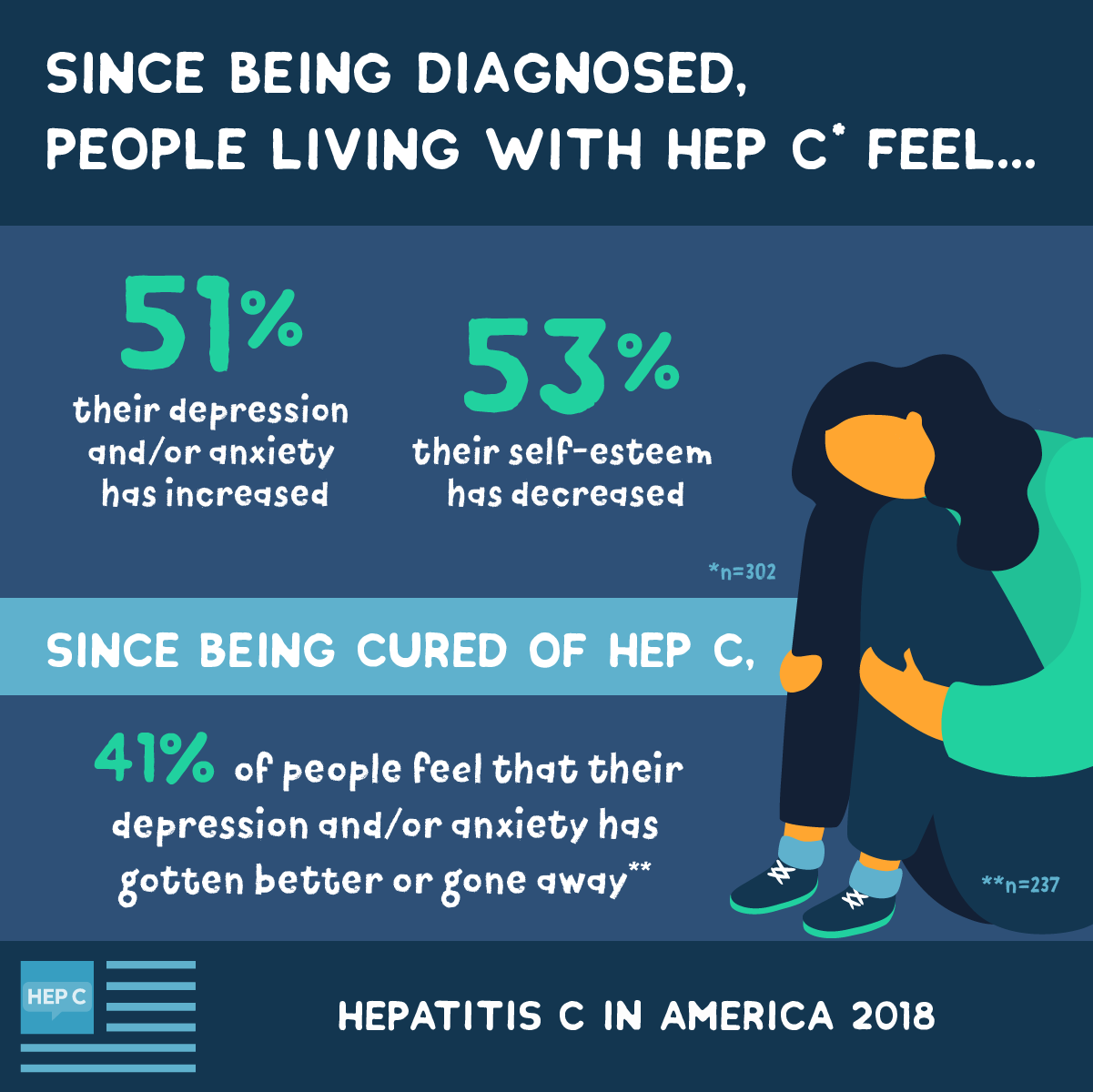The Symptoms, Stigma, and Struggles of Life with Hep C – Results from the 2018 Hepatitis C In America Survey
Hepatitis C affects more than just the liver- it can affect many parts of the body, and mental wellbeing. Although newer treatments can be highly effective, many patients face hurdles to accessing treatment and getting cured, as well as stigma and judgement from the people in their lives. We conducted a survey to learn more about managing hepatitis C, including symptoms, treatment satisfaction, and the doctor-patient relationship. More than 500 people shared their experiences of life with hepatitis C.
Hep C symptoms don't just affect the liver
While hepatitis C typically causes inflammation and injury to the liver, hep C often affects other parts of the body too. For example, many patients experience fatigue or muscle aches. When asked about their symptoms, patients said that fatigue, cognitive difficulties, and joint pain had the greatest impact on their daily lives.
The doctor-patient relationship: It's complicated
When dealing with a chronic health condition, it’s important to trust and feel comfortable with your healthcare team. Unfortunately, many people with hep C are not satisfied with their primary healthcare provider. Similarly, when interacting with healthcare professionals, many patients feel embarrassed about their hep C diagnosis.
Hurdles to accessing treatment
For someone who has been diagnosed with hepatitis C, there may be several hurdles to starting treatment. Due to a variety of reasons, over 1/3 of patients waited more than 3 years to start hepatitis C medication after their initial diagnosis.
The impacts of stigma and embarrassment
Hepatitis C remains a highly-stigmatized health condition, and many patients feel criticized for having hepatitis C. In particular, many patients said that people make assumptions or judgements about how they contracted hepatitis C.
Because of the stigma surrounding hepatitis C, many patients feel embarrassed, and even isolated. Feeling of embarrassment vary, but some patients feel embarrassed about having hep C, or how they contracted it. Others feel embarrassed about the stigma associated with hep C, their physical appearance, or feeling tired or weak.
Hepatitis C can affect wellbeing and self-esteem
For many, hepatitis C affects physical health, as well as mental wellbeing. Of patients who have not been cured, over ⅓ are not content with their quality of life. However, after being cured, many reported that their mental health improved. Overall, many patients are looking for emotional support, as well as coping techniques, to better manage their hepatitis C.
The Hepatitis C in America 2018 survey was conducted online from April through July of 2018. Of the 539 people who completed the survey, 302 were classified as “Not cured” (still infected with hepatitis C) and 237 were classified as “Cured” (no longer having the infection). Prior to the survey, all respondents had tested positive for hepatitis C infection and had been diagnosed with chronic hepatitis C infection.







Join the conversation